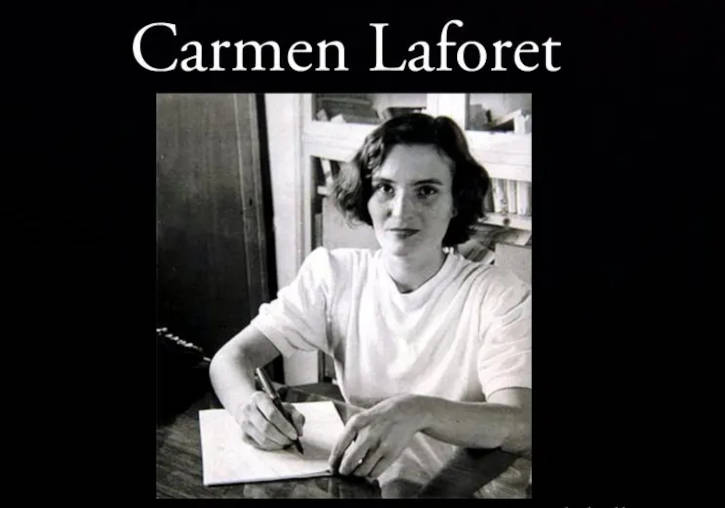Alumni UV recovers the reading of one of the greatest works of contemporary Spanish literature: “Nada”
- UV General Foundation
- March 2nd, 2022

The QUIJOTE Reading Club in Spanish organised by Alumni UV, had recovered in March the reading of one of the main works of contemporary Spanish literature: “Nada”, by the Barcelonian Carmen Laforet. This existentialist novel was the starting point for the Nadal Awards in 1944, an award with which the author was recognised. The club met last Tuesday, the 1st, at the Colegio Mayor Rector Peset.
With the reading of “Nada”, Alumni closed the readings in Spanish programme in the first quarter of the year, after having read and discussed famous and profound works that marked a milestone in the literature of the time, such as 'En el último azul', by Carme Riera, in January, and 'Stoner', the best-known novel by John Williams, in February.
The Club will restart in the third quarter of the academic year with Mary Shelley's classic “Frankenstein o el modern Prometeo” (12th April) and will continue to pay homage to the recently deceased Almudena Grandes by reading two of her most “literary” books: “La madre de Frankenstein” (3rd May) and “El lector de Julio Verne” (7th June).
Carmen Laforet and "Nada"
Laforet was very young when she wrote “Nada”, a masterpiece that must be read at all educational stages. The author, native to Barcelona, was only 23 years old, and both her youth and the fact that it was her first novel attracted the attention of the public, which was highly acclaimed until it won two literary prizes: the first Nadal prize in the 1940s and the Fastenrath prize of the Real Academia Española.
In “Nada”, Carmen Laforet describes post-war Spanish society from an existentialist point of view, reflecting the poverty of that period through the eyes of her protagonist, Andrea, and the anguish with which she faces her daily life. It is the early years of Francoism, and hunger, misery and hardship are part of the daily life of any working-class family.
Laforet's literary style (which blends such emphatic and forceful movements as realism and existentialism with the newness of the writer's youth) marked the renewal of Spanish prose in the middle of the century.
More information:
File in: Fundació General UV , Alumni UV













